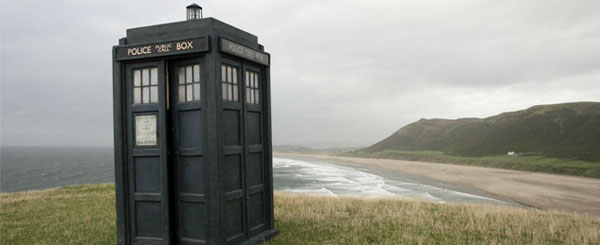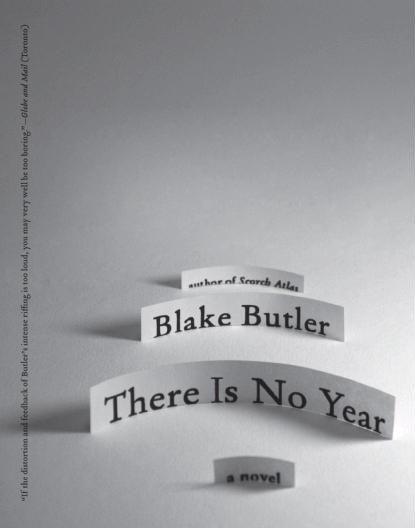Drop it like it’s shottttttttttttttttttttttttttttttttttttttttttttttt

People like to be entertained. They like to have something happen in front of them that makes them feel like they were there, saw something, can remember it thereafter. It’s a function of the fact that most of the time spent on the air occurs without definitive sequence or direction, at least not one that appears until the thing is over. This appearance of the sequence after the sequence has been completed is true of human lives, regardless of how directionless they may seem while they are going on, but it is also true of something like a table: a thing that does not move, exerts no proper influence. The story of any table, in its not moving, likely has more motion to it than a lot of things that traditionally exert arcs, such as a sitcom or a ballgame.
It is impossible for nothing to happen, really. The sentence “Orb fell through water.” exerts no definitive narrative product, but does show motion, and contains numerous hidden elements, i.e.: what is the orb? why did it fall? Many would expect then the orb to have a reason for falling, a product of its hitting the water, a cause and effect. But what if the orb is never mentioned again? Does this mean nothing happened? Could the appearance of the orb and subsequent lack of resolution thereby inscribe in the motion of whatever came after it, say “Days slurred numbers in a holy walk.” Is the orb in the days, slurring the numbers; why? Does the orb’s minor appearance lose its motion in not returning, the way a dog might pass your window? Obviously I think no, and some would argue that even if it doesn’t lose its motion fully it could have more presence by returning, but which is more masturbatory? Masturbation, often an ideological anathema to narrative wanting, seems defined by its repetition, by its return again and again to a familiar stroke, with a final climax that has no question. Sex, the stuff of most here’s-how-we-keep-you-interested,-by-having-all-the-characters-fuck-all-the-other-characters-and-or-die-one-by-one-style media, holds the relic of passing time, in the name of pleasure, such that at the end of it there is a thing on the floor and a happy body and a readiness to go to sleep.
I won’t say anything directly about America here, about how we are encouraged to go to sleep, because one of the functions of America is to make that argument sound like a supposed stroke in the supposed massive aesthetic jack off of “resolutionless art” that is actually perpetrated in the meat and bones of everything that has put us politically and culturally, on a majority scale, in the joke box of history.
At the Awl, a comprehensive post re: David Foster Wallace’s private self help library.
Did you buy How They Were Found by Matt Bell? He wants to give you a free ebook. Details on his blog.
Using Biographies

In Peter Bien’s introduction to his biography of Nikos Kazantzakis — Kazantzakis: Politics of the Spirit, Volume 1 — he quotes (apologies: this gets meta pretty fast) Stanley Hoffmann’s review of Annie Cohen-Solal’s Sartre: A Life, in which Hoffman says there are at least four ways to write biographies:
“especially those of writers as monstrously prolific as Sartre. One way is to try to deal both with the events in their private and public lives and with their writings. In the case of Sartre, this would require several volumes and an author who would feel competent to handle philosophy, epistemology, novels, plays, screenplays, politics, literary and art criticism and psychoanalysis . . .”
“Another possibility . . . is to try to find in the works the expression . . . of the writer’s personal traumas and conflicts.” A third possibility is to discuss the works at least briefly and to show “their connection with the author’s and the general public’s concerns of the moment, without providing an extensive analysis of the content or indulging in psychological reductionism.” Lastly, one can leave the work aside and concentrate on the life. “It is, of course, a debatable choice. What is Sartre without his books?” READ MORE >
The Poetical Taxon: A Questionnaire

My friend Joseph P. Wood wrote an interesting article over at Open Letters Monthly titled, “Taxonomy and Grace.” I think his basic thesis is encapsulated in these lines:
“While creative writing in American literature has always had camps, movements (and the prerequisite back-biting and bickering), I believe our current poetic climate is so conflicted and contentious that we have done away with talking about poems on their own organic terms. Let it be clear: I am not arguing for a return to New Criticism nor do I believe in the overtly easy-blame game of it’s the fault of those fucking universities. We live in the 21st century. What’s the point of asking to return to “the good old days” when those days would have excluded the likes of me — a working class, oddly educated, and peculiarly read writer with gaping holes in my canonical knowledge? I’m suggesting that while it is important to attend to our own academic reputations and political and aesthetic convictions, it is more important that we honor the imagination by not solely treating the poem against a singular interpretive mechanism.”
It might initially seem as though Joseph is arguing against the artist pigeonholing herself, right, by ascribing to one philosophical or theoretical stance, and this would be true, but I think he’s also genuinely concerned with the way we read and discuss poetry, the way we disseminate poetry. Has poetry become such an in-club that we can’t love a poem without ascribing it to a school or a movement? Do we have to know a shit-ton about Wittgenstein in order to speak intelligently about a poem? And as for the artist, is joining the club actually the job, or the business, of a poet (insert artist, writer, whatever besides critic)? Shouldn’t we simply write our way into the world? Are we in an age that forces us to straddle the fence between idea-schools and self-expression? What about the movements that aggregate what their members believe and create manifestos? I mean, where’s threshold beyond which the artist is in danger of losing her essential selfhood?
Read the article. Take issue. Praise its inherent belief in beauty and grace.
NYPL Young Lions Announcement

Every year, the New York Public Library & Ethan Hawke award $25k to a writer under 35 based on a book she published the previous year. Here’s the full press release. Here is this year’s list:
Citrus County by John Brandon (McSweeney’s)
Vida by Patricia Engel (Grove Press)
The Instructions by Adam Levin (McSweeney’s)
Death Is Not an Option by Suzanne Rivecca (W.W. Norton & Company)
Kapitoil by Teddy Wayne (Harper Perennial)
What do you think about this list? What have you read on this list? Who “deserves” it? Who’s missing? What was your favorite book published in 2010 written by a writer under 35?
TODAY THERE IS NO YEAR

So happy for Blake and this book, as its presences will be felt. I love this book and I love Blake, so get your hands on this now.
Real Talk (The Lighter Side)

via Consumerist via Matt Bell’s FB wall
On Being Clever
 If you’re over eight years old, you don’t want anybody calling your art clever. Right? Clever is bad. Smart is good, maybe the best kind of smart is so smart it’s stupid. Dumbstruck. Two fish / this is water. Bill, a guy my father hated, out on the roof fixing our swamp cooler in the kind of beautiful July afternoon that gives California the best avocados. And Bill calls out: “Ain’t there just some days you’re glad to wake up?” And my father, talking to Bill through the slats of the swamp cooler, agrees. This is so stupid it’s smart. But it would’ve been clever if my father had said “Yeah, and there’s other days I’m just glad to fall asleep.” Too clever by half. Clever as measurement. Clever as cleaver. Perhaps from E.Anglian dialectal cliver, “expert at seizing,” Influenced, perhaps, by O.E. clifer “claw, hand.” Sammy Johnson said: “This is a low word, scarcely ever used but in burlesque or conversation; and applied to any thing a man likes, without a settled meaning.” Clever of me to say Sammy instead of Samuel, to make you think an extra nano-second who I mean, clever doesn’t want to give the other person credit (of course I knew you meant Samuel, asshole), clever means I’m hungry to catch the bus before you. Clever basically as cowardice and fear of intimacy. Right? READ MORE >
If you’re over eight years old, you don’t want anybody calling your art clever. Right? Clever is bad. Smart is good, maybe the best kind of smart is so smart it’s stupid. Dumbstruck. Two fish / this is water. Bill, a guy my father hated, out on the roof fixing our swamp cooler in the kind of beautiful July afternoon that gives California the best avocados. And Bill calls out: “Ain’t there just some days you’re glad to wake up?” And my father, talking to Bill through the slats of the swamp cooler, agrees. This is so stupid it’s smart. But it would’ve been clever if my father had said “Yeah, and there’s other days I’m just glad to fall asleep.” Too clever by half. Clever as measurement. Clever as cleaver. Perhaps from E.Anglian dialectal cliver, “expert at seizing,” Influenced, perhaps, by O.E. clifer “claw, hand.” Sammy Johnson said: “This is a low word, scarcely ever used but in burlesque or conversation; and applied to any thing a man likes, without a settled meaning.” Clever of me to say Sammy instead of Samuel, to make you think an extra nano-second who I mean, clever doesn’t want to give the other person credit (of course I knew you meant Samuel, asshole), clever means I’m hungry to catch the bus before you. Clever basically as cowardice and fear of intimacy. Right? READ MORE >
On Esoteric Interests & The Pain That Follows*

I’ve spent a good portion of my life listening to people tell me that my tastes are pretentious, or that I only like the “stuff” that I like because nobody else likes it, or the I intentionally look for the most obscure shit possible to obsess over, etc. etc. etc. This is bullshit, of course. And I mean, whatever, I don’t have anything to prove and that’s not exactly the point of this post.
